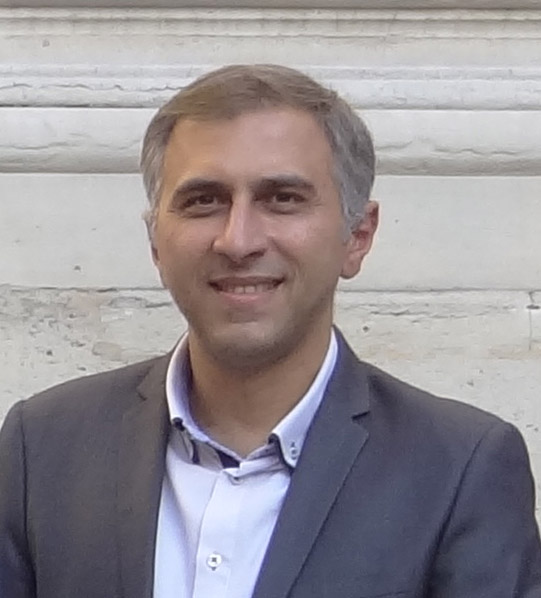Riad Haidar has been the Chief Scientific Officer (CSO) of ONERA since 1 January 2022. He succeeds Stéphane Andrieux, who has taken retirement. This means he is the head of the DSP (Direction scientifique et prospective - Scientific research and forward planning directorate), which includes the General Scientific Directorate (DSG), the CPVA (Centre de Prospective et de Veille Aérospatiales), ONERA's aerospace prospective studies and monitoring centre, and the DST (Direction de l’information scientifique et technique - Scientific and technical information directorate). We look back on his career path in the service of science and education.
A vision of collegial research, from the most fundamental to pure innovation
 Passionate about teaching and passing on knowledge, Riad Haidar wishes to build on the values and strengths that are the lifeblood of ONERA.
Passionate about teaching and passing on knowledge, Riad Haidar wishes to build on the values and strengths that are the lifeblood of ONERA.
At the forefront of these strengths, there is the complementarity between, on the one hand, the end purpose that guides the research activity carried out by the ONERA teams and, on the other, the scientific ambition that helps nourish this activity. “ I see two cardinal virtues at work here, ” says Riad Haidar. “ The first is that this offers research engineers the opportunity to contribute to scientific advances and education through research. The second is that this subtle balance allows ONERA to anticipate the projects of tomorrow and work on topics of the future. It’s not a matter of either or, but of both together. "
Research and innovation are fuelled by the talent and energy of the people: " I believe that the model of the research engineer working alone in his or her corner is outdated. In the context of today’s research, it is much more efficient to rely on teams and collaborations bringing to bear all their complementary skills. "
This is the spirit of research that allows ONERA to attract talent. " The sharpest minds are also needed at ONERA to feed into the collegiate mindset, and they need to be given time to construct and put their ideas forward. "
Potted CV
- 1999: engineering diploma from the IOGS (Institut d’Optique Graduate School)
- 2000: PhD thesis in Physical Sciences from Paris-Saclay University
- 2003–2017: research engineer, then head of unit in 2011 at ONERA
- Since 2008: lecturer at IOGS
- Since 2010: lecturer at the École Polytechnique
- 2014 to 2019: editor-in-chief of the Photoniques magazine
- 2017 to 2021: Director of Physics at ONERA’s General Scientific Directorate (DSG)
- 2019 to 2021: Deputy Chief Education Officer, IOGS
- 2022: Chief Scientific Officer at ONERA
Chief Scientific Officer with a team for organising research at ONERA
In order to carry out his mission, Riad Haidar aims to draw on the team of scientific directors who are specialists in their fields – Materials and Structures, Fluid and Energy Mechanics, Physics, Advanced Numerical Simulation, Information Processing and Systems.
He continues to pursue the tradition of scientific leadership sought by his predecessor, Stéphane Andrieux: to promote high-quality scientific production using motivational and guidance tools, and to stimulate research engineers with ambitious objectives consistent with ONERA’s missions. « Stéphane Andrieux was a great architect,» says Riad Haidar in praise of his predecessor. « He set up a highly organised and collegial scientific department and launched projects that have contributed to greater scientific visibility for ONERA, particularly in conjunction with such major institutions as Paris-Saclay University and the Paris Institut Polytechnique. »
It is this constructive mindset that he intends to perpetuate in his capacity as CSO. « We must support our teams through consolidating the clear and well-defined positioning of ONERA within the national - and also European - scientific ecosystem, so as to strengthen our leadership in scientific research in aeronautics, space and defence, which is already indisputable, particularly when taking account of our facilities and human resources in relation to other partners. »




